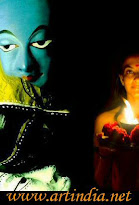Music's foot soldier
by SRAVASTI DATTA
MUSIC Harmandir Singh 'Hamraaz' did what the Film Archive of India couldn't do – he undertook the compilation of Hindi film songs from the 1930s to 1980, titled Geet Kosh. His interest rests on pure passion and dedication DEDICATIONHarmandir Singh: ‘My search then began for songs rarely heard on radio One man achieved what established Institutes, the Indian film industry and even the Government could not—compile a collection of Hindi film songs spanning five decades (1931 to 1980), documented in five volumes. Based in Kanpur, Harmandir Singh “Hamraaz” is widely respected among music lovers for his single-minded determination and years of intense research and hard work to compile “Hindi film Geet Kosh”. What began as a hobby soon developed into a professional pursuit. “My mother and maternal grandmother — who was an excellent singer too — were music lovers. I developed my passion for music from them. The idea of compiling Hindi film songs germinated while I was still in school. I used to listen to Radio Ceylon that had a large collection of Hindi film songs. A particular programme ‘Vyaka Geetanjali' that was aired frequently — in which listeners actively participated — further inspired me to pursue compiling Hindi film songs. I took time out, while working in State Bank of India, to pursue this project. ” Harmandir accessed other sources too. “Feroze Rangoonwala's 1969 work ‘Indian Filmography', which listed all censored Hindi films from 1931 till 1969. It became a foundation work for me. There was one problem though, it contained only the names of the production company, title of the film, director, music director and artists', but no comprehensive information on Hindi film songs. To fill this gap, I used to listen to Vividh Bharati and Radio Ceylon and note down information on all the songs played.” Harmandir's research evolved in stages. “My search then began for songs rarely heard on radio. At this point, I came across ‘Madhuri', a Times of India publication, a well-known Hindi magazine, published fortnightly. I wrote in it appealing to music lovers to help me with ‘Geet Kosh'''. “I found texts from the 1920s, in which the producer had to submit important information on the film to the Censor Board. It contained the full text of all the songs. But here too there was a small problem; the singers of all the songs weren't listed. To fill this gap, I corroborated information that I got from HMV gramophone records that I had purchased.” Sources, at times, came from unexpected places. “R.K. Lal, a local music lover from Indore, helped me to purchase booklets from the 1930s and 1940s from Shankar Lal's bookstore, which was converted into a paan shop. The shopkeeper did not allow anyone to enter his shop, he even refused me entry. After some convincing, he allowed me to access the booklets. The place was dusty and it took me hours to sift and sort through the texts, re-arrange and catalogue them with a lot of help from R.K. Lal. The booklets cost one rupee but I managed to buy each of the booklets for 25 ps.” Undeterred by obstacles, Harmandir had to face one last hurdle — to find a publisher for “Geet Kosh”. “The money that I received as bonus from my employer and support from music lovers helped me to collect Rs. 25, 000, quite an amount in those days. That money was spent in publishing just Volume three.” No one could believe that a project of this magnitude could be achieved by a single person. Harmandir recounts an interesting incident. “Dr. Yasin Dalal, who was the head of journalism at Rajkot (Saurashtra University), once openly announced, ‘I was sure before I received Harmandir's compilation that I would receive stones: first, because Kanpur is a notorious city and second, I thought it humanly impossible for a single individual to get such a compilation published! I remember that incident clearly,” Harmandir laughs and says. Harmandir barely received Institutional support. “A certain gentleman asked me why I hadn't sought Government aid. Then he told me that it was good I hadn't as no help would be forthcoming. I later found out that he was the Cultural Minister of Gujarat!” Harmandir laments that Institutes such as the National Film Archive of India have contributed little to the compilation of Hindi film songs. “They have taken no initiative on their own to compile Hindi film songs, the information they have received have been handed down to them. I spent a lot of time in the library there, where I accessed old Hindi film magazines with help from my friends G.C. Sharma and B.N. Chatterjee. ” However, Volume Three was published first in 1980. “One contributor, Ratan Lal Kataria from Kekri district in Ajmer contributed thousand rupees and insisted that Volume One be published, but I could not publish it first. I knew that it wouldn't sell as it dealt with an older period of Hindi film songs. It took me seven to eight years to publish it. Volume 1 was finally released in 1988.” Harmandir was particular that each fact, even the smallest of it, was accurate. “There have been times when even the directors of movies got the name of the music director wrong. But I didn't go by even the most reliable person's memory. I cross-checked details repeatedly.” Harmandir has embarked on his next challenge — to make “Geet Kosh” available online. “Sudhir Kapur from Delhi recently developed software for data entry. The entire exercise will cost two lakhs. It's crucial that the data is accurate. There are many ardent music lovers, all of them are enthusiastic. What is required is dedication to achieve the goal of digitising ‘Geet Kosh'''. For details log onto hamraaz.org. SRAVASTI DATTA
by SRAVASTI DATTA
MUSIC Harmandir Singh 'Hamraaz' did what the Film Archive of India couldn't do – he undertook the compilation of Hindi film songs from the 1930s to 1980, titled Geet Kosh. His interest rests on pure passion and dedication DEDICATIONHarmandir Singh: ‘My search then began for songs rarely heard on radio One man achieved what established Institutes, the Indian film industry and even the Government could not—compile a collection of Hindi film songs spanning five decades (1931 to 1980), documented in five volumes. Based in Kanpur, Harmandir Singh “Hamraaz” is widely respected among music lovers for his single-minded determination and years of intense research and hard work to compile “Hindi film Geet Kosh”. What began as a hobby soon developed into a professional pursuit. “My mother and maternal grandmother — who was an excellent singer too — were music lovers. I developed my passion for music from them. The idea of compiling Hindi film songs germinated while I was still in school. I used to listen to Radio Ceylon that had a large collection of Hindi film songs. A particular programme ‘Vyaka Geetanjali' that was aired frequently — in which listeners actively participated — further inspired me to pursue compiling Hindi film songs. I took time out, while working in State Bank of India, to pursue this project. ” Harmandir accessed other sources too. “Feroze Rangoonwala's 1969 work ‘Indian Filmography', which listed all censored Hindi films from 1931 till 1969. It became a foundation work for me. There was one problem though, it contained only the names of the production company, title of the film, director, music director and artists', but no comprehensive information on Hindi film songs. To fill this gap, I used to listen to Vividh Bharati and Radio Ceylon and note down information on all the songs played.” Harmandir's research evolved in stages. “My search then began for songs rarely heard on radio. At this point, I came across ‘Madhuri', a Times of India publication, a well-known Hindi magazine, published fortnightly. I wrote in it appealing to music lovers to help me with ‘Geet Kosh'''. “I found texts from the 1920s, in which the producer had to submit important information on the film to the Censor Board. It contained the full text of all the songs. But here too there was a small problem; the singers of all the songs weren't listed. To fill this gap, I corroborated information that I got from HMV gramophone records that I had purchased.” Sources, at times, came from unexpected places. “R.K. Lal, a local music lover from Indore, helped me to purchase booklets from the 1930s and 1940s from Shankar Lal's bookstore, which was converted into a paan shop. The shopkeeper did not allow anyone to enter his shop, he even refused me entry. After some convincing, he allowed me to access the booklets. The place was dusty and it took me hours to sift and sort through the texts, re-arrange and catalogue them with a lot of help from R.K. Lal. The booklets cost one rupee but I managed to buy each of the booklets for 25 ps.” Undeterred by obstacles, Harmandir had to face one last hurdle — to find a publisher for “Geet Kosh”. “The money that I received as bonus from my employer and support from music lovers helped me to collect Rs. 25, 000, quite an amount in those days. That money was spent in publishing just Volume three.” No one could believe that a project of this magnitude could be achieved by a single person. Harmandir recounts an interesting incident. “Dr. Yasin Dalal, who was the head of journalism at Rajkot (Saurashtra University), once openly announced, ‘I was sure before I received Harmandir's compilation that I would receive stones: first, because Kanpur is a notorious city and second, I thought it humanly impossible for a single individual to get such a compilation published! I remember that incident clearly,” Harmandir laughs and says. Harmandir barely received Institutional support. “A certain gentleman asked me why I hadn't sought Government aid. Then he told me that it was good I hadn't as no help would be forthcoming. I later found out that he was the Cultural Minister of Gujarat!” Harmandir laments that Institutes such as the National Film Archive of India have contributed little to the compilation of Hindi film songs. “They have taken no initiative on their own to compile Hindi film songs, the information they have received have been handed down to them. I spent a lot of time in the library there, where I accessed old Hindi film magazines with help from my friends G.C. Sharma and B.N. Chatterjee. ” However, Volume Three was published first in 1980. “One contributor, Ratan Lal Kataria from Kekri district in Ajmer contributed thousand rupees and insisted that Volume One be published, but I could not publish it first. I knew that it wouldn't sell as it dealt with an older period of Hindi film songs. It took me seven to eight years to publish it. Volume 1 was finally released in 1988.” Harmandir was particular that each fact, even the smallest of it, was accurate. “There have been times when even the directors of movies got the name of the music director wrong. But I didn't go by even the most reliable person's memory. I cross-checked details repeatedly.” Harmandir has embarked on his next challenge — to make “Geet Kosh” available online. “Sudhir Kapur from Delhi recently developed software for data entry. The entire exercise will cost two lakhs. It's crucial that the data is accurate. There are many ardent music lovers, all of them are enthusiastic. What is required is dedication to achieve the goal of digitising ‘Geet Kosh'''. For details log onto hamraaz.org. SRAVASTI DATTA



































